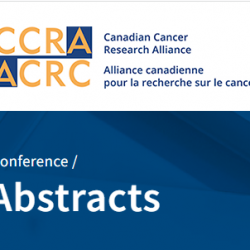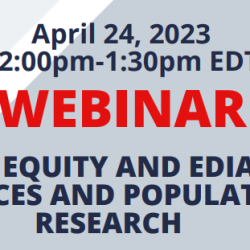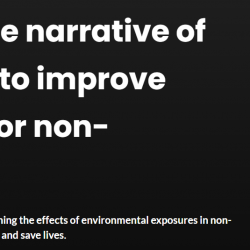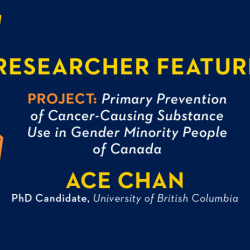Congratulations to CanPath as one of the new Genome Canada supported projects! “The Honourable François-Philippe Champagne, Minister of Innovation, Science and Industry, announced $18.1 million in federal support through Genome Canada for 13 late-stage research and development projects tackling major challenges in health, environment and agriculture through genomics. The projects announced today—deployed through diverse research partnerships with industry, healthcare organizations, as well as provincial and other federal partners—will harness cutting-edge genomics science to deliver real world impacts for healthier, more sustainable and prosperous communities across Canada. These public-private partnerships will generate solutions for: Health, by delivering life-saving precision health, new treatment and diagnosis options, and public health innovation for pathogen surveillance. Environmental sustainability, by driving environmental protection in mining and development of new tools to ensure ecosystem health. Resilient agriculture, by enabling nature-based solutions for pest management.” Additional Details: https://genomecanada.ca/genome-canada-investments-drive-cutting-edge-rd-in-health-environmental-sustainability-and-agricultural-resilience/ CanPath, in partnership with Ontario Genomics, will focus on Enabling Personalized Genomics in Health with the CanPath Data Safe Haven. Led by Dr. Philip Awadalla (co-Scientific Director, CanPath), Dr. John McLaughlin (Executive Director, CanPath) and Dr. Trevor Dummer (co-Scientific Director, CanPath). “Personalized healthcare programs require the collection and integration of high-quality data and biosamples from a vast number of individuals to capture the complex factors that can shape an individual’s health over the course of their lifetime. To enable discovery, evidence generation and policy change, the data must be accessible to both researchers, as well as public and commercial health decision makers. In Canada, the sharing and combining of data across jurisdictions, rather than collecting the data itself, is a major barrier to progress in precision medicine. The promise of personalized medicine is within reach through the Canadian Partnership for Tomorrow’s Health project (CanPath): Canada’s largest population health cohort. CanPath has made major strides towards integrating clinical, environmental, and population-level health data across all provinces and providing a national access point to deeply characterized and longitudinal health and lifestyle information, more so than any other entity in Canada. Here, the team will build upon CanPath’s existing national infrastructure to democratize access to the CanPath platform to better enable Canadian-led innovation and discovery. They will develop and pilot a data safe haven (DSH), a secure environment within which researchers, clinicians and industry in Canada can access deeply characterized population health and biobank data. In partnership with Adela, they will generate genomic data that will be hosted alongside clinical and population data of consented CanPath participants from across Canada within this secure digital framework. The DSH holds the potential to launch Canada to the forefront of genomic medicine globally. It will also support the development of Canada’s biotechnology sector and industry research as well as creating the ability to harmonize with leading precision medicine programs. The ultimate result will be earlier diagnosis of disease, advances in medical interventions, and improved health system performance for Canadians.” https://bit.ly/43JPW3q










